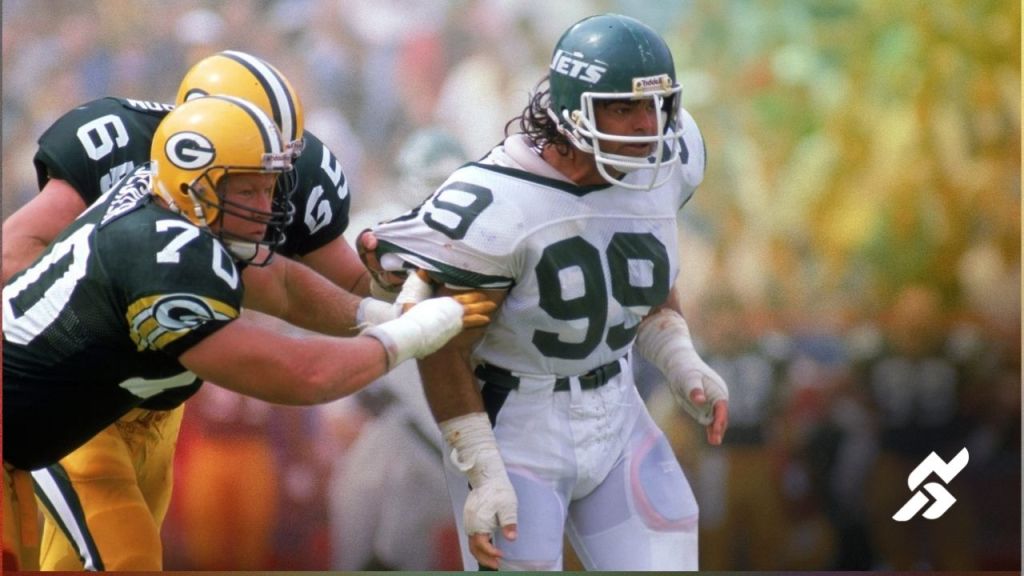Overview of the Lawsuit
Retired New York Jets defensive end Mark Gastineau has filed a $100 million lawsuit against ESPN, the NFL, and other defendants for breach of contract and false endorsement. In a recent motion to dismiss, they argue that Gastineau’s claims contradict the contracts he signed and violate fundamental principles surrounding his publicity rights and the First Amendment.
Background of the Case
Gastineau initially filed his complaint in the Southern District of New York in March, alleging that ESPN and the NFL used unauthorized footage of him from a 2023 confrontation with Hall of Fame quarterback Brett Favre at a memorabilia show. This footage is included in the film “30 for 30: The New York Sack Exchange,” which focuses on Gastineau and his Jets teammates from the 1980s.
Content of the Footage
In the film, Gastineau accuses Favre of “falling down” during a critical play in the 2001 season, which allowed New York Giant Michael Strahan to break Gastineau’s NFL single-season sack record. Gastineau, now 68, claims he has faced ridicule on social media due to how he is depicted in the footage and asserts that he did not give consent for the filming of this interaction. He also claims that his portrayal is misleading because it omits a moment where he and Favre shake hands after their discussion.
Arguments from Defendants
In a filing by attorneys from Oppenheim + Zebrak on July 3, ESPN and the NFL assert that Gastineau’s case is flawed. They argue that he signed contracts with NFL Films that effectively nullify his claims. Notably, Gastineau’s agreement allowed NFL Films to use his name, image, and likeness (NIL) in exchange for payments, and it waived his right to approve his portrayal or the film’s content.
Claims of Public Interest
Furthermore, ESPN and the NFL contend that the encounter with Favre is a newsworthy event, exempting it from right of publicity and privacy claims. They argue that this incident is significant to Gastineau’s legacy and public interest, particularly regarding the controversy over whether Favre intentionally fell to help Strahan achieve the record.
Consent to Recording
The defendants argue that the meeting between Gastineau and Favre was not private, as they were surrounded by spectators, and Gastineau was wearing a microphone provided by the crew. This implies that he consented to the recording, which negates his claims about privacy infringement. The filming was undeniably public, and Gastineau was aware of the presence of the film crew throughout the encounter.
First Amendment Protections
Additionally, ESPN and the NFL highlight that courts typically protect artistic and documentary works under the First Amendment. They maintain that the film about the New York Sack Exchange and its players, including Gastineau, is a legitimate subject of historical narrative, and filmmakers are granted substantial artistic discretion in representing events.
Next Steps
The defendants argue that Gastineau has not demonstrated any damages resulting from the film, as he had agreed to appear in it and relinquished control over how he was presented. Gastineau will have the chance to respond to the motion to dismiss, and the case is currently presided over by U.S. District Judge Paul A. Engelmayer.
NFL Films and ESPN Seek Dismissal of Gastineau’s $100M Lawsuit
Related Posts
Add A Comment



